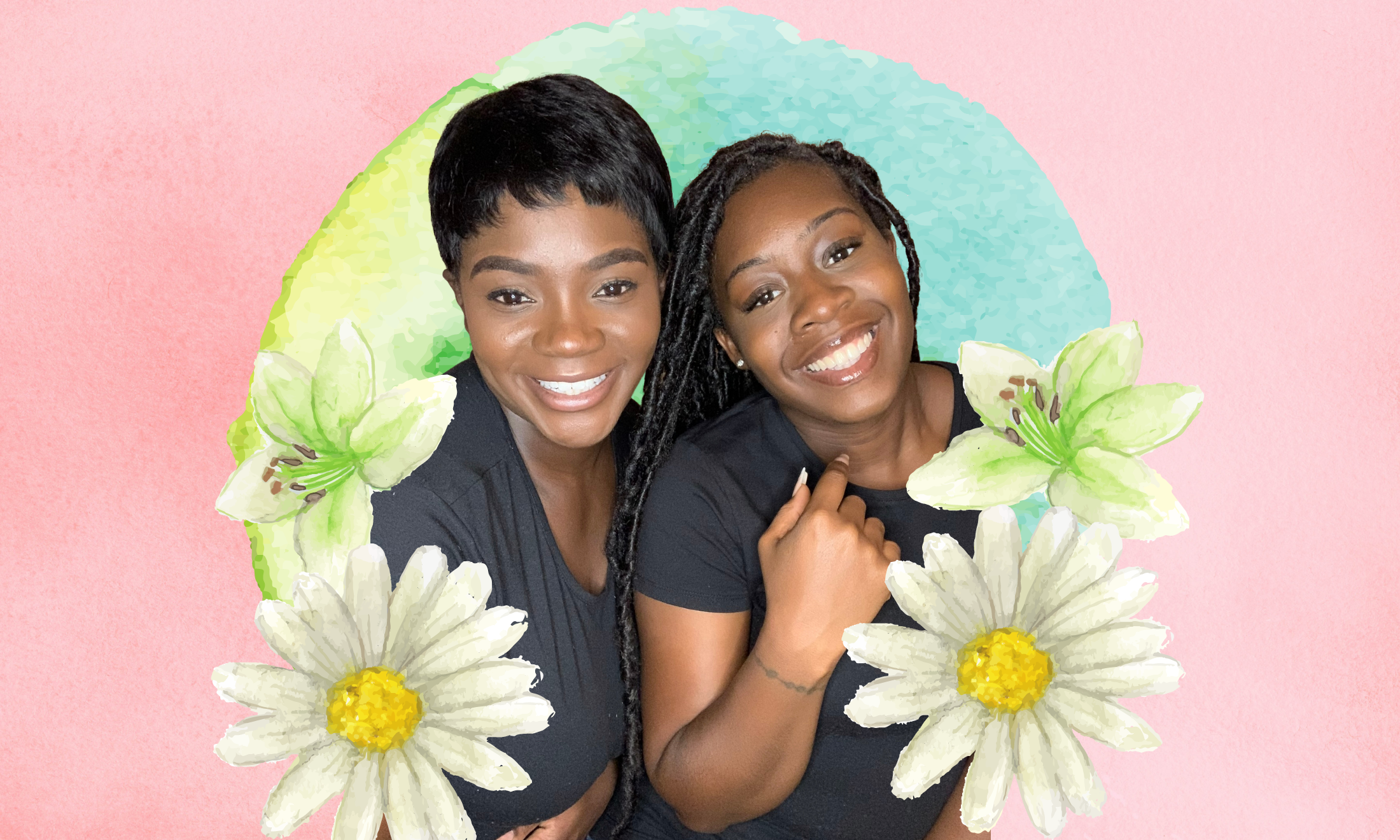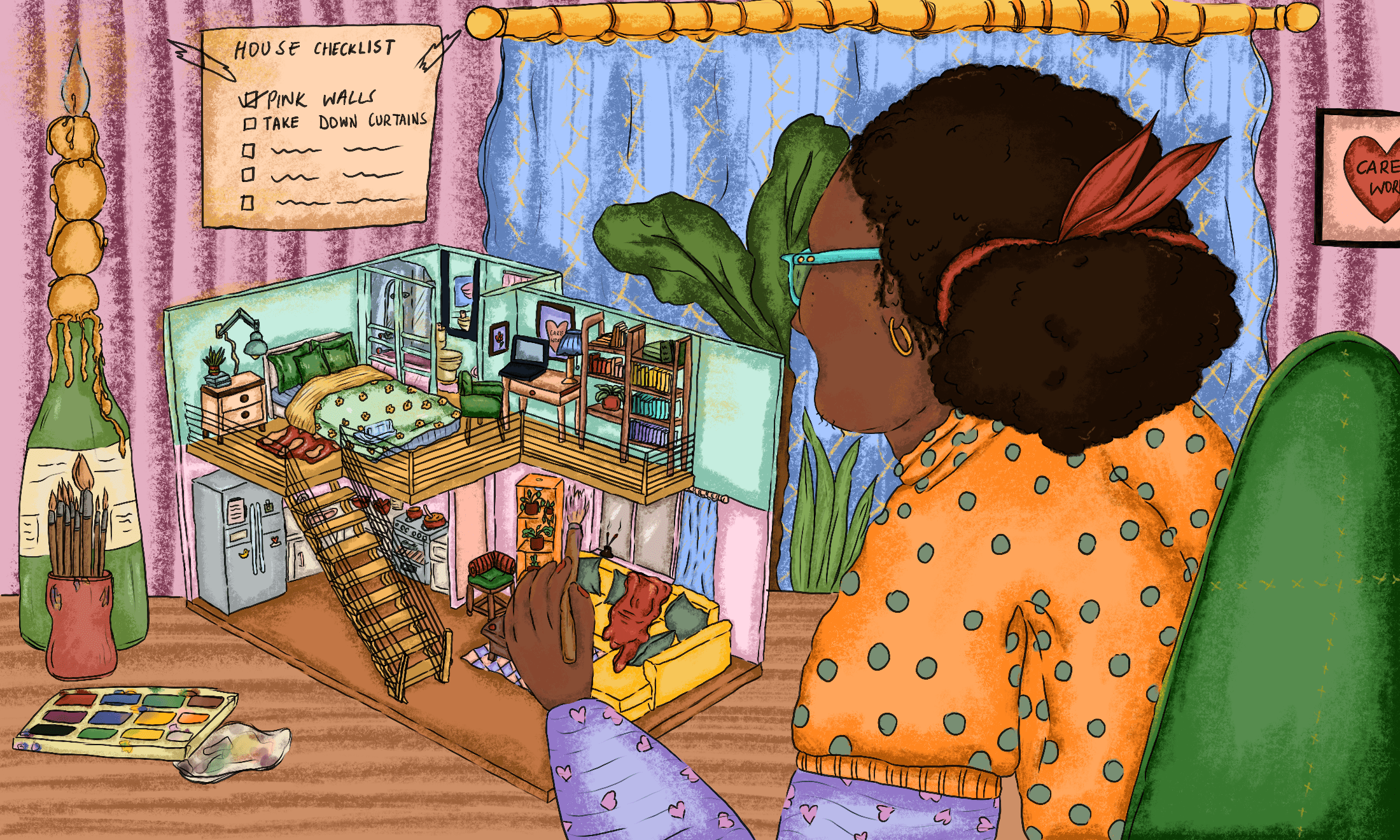
Tinuke Awe and Clotilde Rebecca Abe
How the Five X More campaign is calling for better maternal healthcare for Black women and birthing people
Black women and birthing people face a disproportionate risk of death and health complications during pregnancy and postpartum recovery. Here's how two women are campaigning to change that.
Paige Vahla
14 Dec 2021
It’s a harrowing fact: in the UK, if you are Black, you face a disproportionate risk of death and health complications during pregnancy and postpartum recovery, inevitably worsened by the COVID-19 crisis. In August, I was diagnosed with incisional endometriosis two weeks post-c-section. The doctor hurriedly prescribed me antibiotics for the infection inside my wound and my concerns were met with vague, clinical responses. As a result, I relied on information I found on the internet to educate me on coping with the condition.
A dismissive doctor or healthcare practitioner is a common complaint for expectant Black women and birthing people proving to have life-threatening consequences during childbirth, as Serena Williams has described in her experience, and as shown through the untimely deaths of Mary Agyapong and Nicole Thea. All of these instances are stark reminders of how Black women and birthing people are routinely failed by the maternal healthcare system, regardless of their background.
When Tinuke Awe and Clotilde Rebecca Abe co-founded Five X More in 2018, they also had a personal connection to the struggle of birthing while Black. The inspiration behind the name of the grassroots campaign derived from the annual report conducted by MBRRACE-UK (Mothers and Babies: Reducing Risk through Audits and Confidential Enquiries) which highlighted that Black British women and birthing people were five times more likely than white women to die in pregnancy, childbirth and up to six weeks postpartum.
“In the UK, if you are Black, you face a disproportionate risk of death and health complications during pregnancy and postpartum recovery, inevitably worsened by the COVID-19 crisis“
Tinuke revealed that she received a late diagnosis of pre-eclampsia leading to an induced labour and a forceps delivery. “I was left feeling like my pain wasn’t taken seriously,” she says.
Around 1,000 babies in the UK are lost due to pre-eclampsia and Black women are three times more likely to suffer from the condition than white women. New data released in the MBRRACE-UK 2020 report discovered a slight decrease in the maternal mortality statistic, but Black women and birthing people are still four times more likely to die in pregnancy and childbirth. Now, more than ever, important discussions surrounding the racial disparities in maternal mortality in the UK are addressing how to combat the statistics, and Five X More aims to remain at the forefront of these conversations. “This isn’t going away any time soon,” Tinuke says. “It has taken us decades just to get to this point.”
The report also notes that pregnancy continues to remain comparatively safe in the UK with 8.8 women per 10,000 dying during pregnancy or up to six weeks postpartum. Yet the striking disparities in the rates for Black women and birthing people highlights that there is still so much more work to be done.
Still, there have been plenty of key milestones in the campaign’s mission to change Black maternal mortality outcomes. In September, Five X More announced the launch of an all-party parliamentary group (APPG) on Black maternal health created to tackle institutional racism in the UK healthcare system. A public petition was created to improve maternal mortality rates and healthcare for Black women which gained over 187,000 signatures prompting two historical debates in parliament within five months.
Five X More also launched a Black maternity experience survey. “We had a phenomenal response, we got a panel of all Black professionals and mummy groups, created a very long three-part survey covering the different stages of pregnancy and within 24 hours we had over 500 respondents,” Tinuke explains. In total, there were over 1,300 Black women who completed the survey. “We are currently working on getting that data processed and sharing the report next year.”
Tinuke and Clotilde emphasise the importance of having Black women involved in each stage of the decision-making process when it comes to issues involving Black women, as opposed to their inclusion as an act of tokenism. “We have to be making decisions about our own care and these are the results you can get when you involve Black women,” says Tinuke. “I hope people can see the power of working with Black women when it comes to their issues through our survey.”
Outside of their work with Five X More, Tinuke and Clotilde continue to support Black women. Clotilde runs Prosperitys, a mental wellbeing social enterprise designed for Black and brown pregnant women and birthing people during their pregnancy journey, while Tinuke founded Mums and Tea, a social platform for Black mothers to connect on and offline. “I’m hearing similar stories over and over again,” Tinuke says, “Black women’s pain and concerns are not taken seriously, which [has led] to all kinds of pregnancy-related complications.”
“Black women’s pain and concerns are not taken seriously, which [has led] to all kinds of pregnancy-related complications”
Tinuke Awe, co-founder of Five X More
An inquiry by the charity Birthrights found that Black, brown and mixed ethnicity women reported feeling unsafe, their concerns being ignored or dismissed, denial of pain relief due to racial stereotypes and microaggressions causing harm or distress.
When I ask how this could be avoided, Clotilde advises, “We need to be doing our research. I’m a mum of two and I know going through my pregnancies I wasn’t aware of half the things I’m aware of now.”
For the Health and Safety Committee, Five X More held a consultation where they asked 415 Black women questions about the different types of births. Clotilde revealed that over 70% of the participants were not informed about the different types of birthing options available to them.
Clotilde also adds that from a healthcare professional perspective, the pandemic presents new daily challenges that could reduce the quality of care. “It was a scary time for us health professionals,” she reflects. Due to this, Five X More stresses the importance of speaking up and knowing your rights as they have highlighted in their six steps for mothers and birthing people and other resources on their website. “We have heard so many accounts of women who have been silenced or who say they are not going to bother, which can be quite detrimental,” Tinuke explains. “Trust your gut and no matter what anybody says, it’s your body and nobody knows it better than you.”
The ‘five steps for healthcare professionals‘ that Five X More created with the Royal College of Obstetricians and Gynaecologists (RCOG) advises Black women and birthing people to also refer to this guide to ensure healthcare professionals are providing them with high-quality maternity care and to challenge their services when it is not aligned with the steps, “This serves as a reminder on how to better care for Black women,” Tinuke says. “Actively seeking out that knowledge, and asking the right questions so you can better advocate for yourself.”
This September marked the second Black Maternal Health Awareness Week, an annual campaign founded by Five X More dedicated to raising awareness about these disparities. The focus this year was on changing the narrative, removing the spotlight on trauma to present more solutions to Black maternal mortality concerns. “We wanted the conversations to be more inclusive,” Clotilde tells me, with more emphasis on topics for mothers and birthing people in LGBTQI+ communities, fertility and explaining the roles of different health professionals within maternity services.
“It’s good to know we’re all working together collaboratively to be a part of the solution and to help Black women feel more confident and well informed about giving birth.”

The first time I owned my queerness was in front of an aunty doctor

How interior design brings comfort to the depths of my chronic illness

‘As disabled people we have been living in a cost of living crisis for years’






